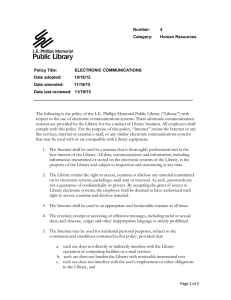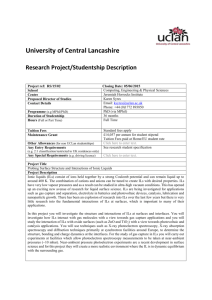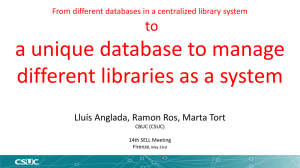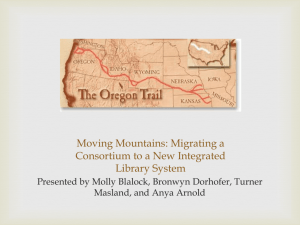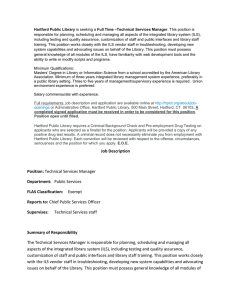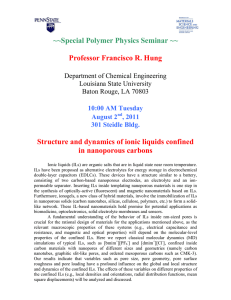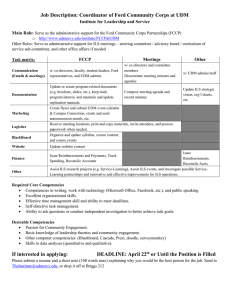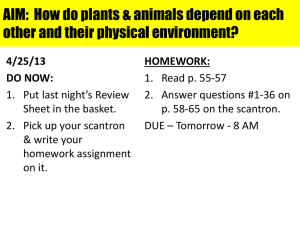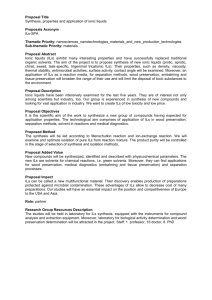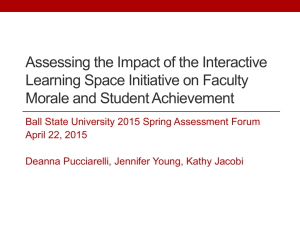Integrated Life Science (ILS)
advertisement
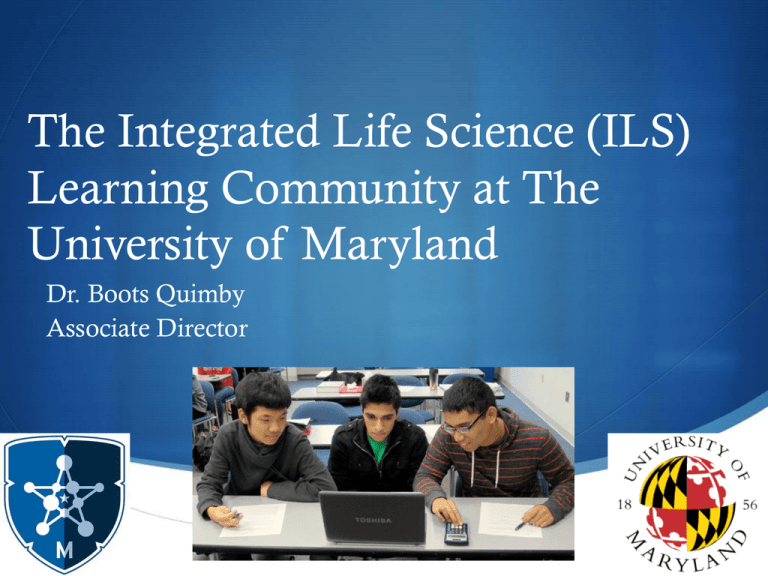
The Integrated Life Science (ILS) Learning Community at The University of Maryland Dr. Boots Quimby Associate Director S Birth of ILS BIO 2010 Scientific Foundations for Future Physicians Vision and Change 1) Discrete subjects integrated sciences 2) Memorizing “required” knowledge mastering competencies 3) Passive lectures active engagement, group learning, inquiry-based learning, etc. 4) Overall goal - “how to think like scientists” ILS Mission S To inspire, educate and launch the careers of talented honors students in all aspects of the life sciences Four Aspects to the program S Academic S Research S Community S Service Academics S Fours academic courses taken over two years S Organismal Biology S Genes and Genomics S Mathematical Modeling or Cell Biology S Research and Applications in Life Science Todd Cooke Raymond St. Leger Jonathan Simon Boots Research S Required to complete 240 hours of life science mentored research S 60% of students complete the research requirement the summer after their freshman year Community S Live together on a single dormitory floor S First year is required S Second year is optional S Staff offices are in the dormitory S ILS Provides a variety of academic and social activities Service S Service Learning Course S Students complete 12 hours of service with set service partners S Focuses on 3 areas related to the life sciences S Social determinants of health S STEM education S Sustainability ILS Students S Majors S 70% Biological Sciences S 15% Bioengineering S 10% Biochemistry S 5% other S Career goals S 80% medical school S 20% graduate school Retention Rates S First Year: 87% S Second Year: 94% Assessment S Course pre- and post-surveys S Student perceptions surveys S Focus groups Results S Students have an enhanced awareness of the multidisciplinary nature of science S We are meeting our targeted Vision and Change Core Concepts for Biological literacy and Disciplinary Practice S Students feel a strong sense of belonging, social support, and positive peer interactions both academically and socially S Sense of belonging and social support is correlated with GPA Conclusions S The ILS program is an effective model for implementing the new reforms in undergraduate biology education. S Integration of a social-cultural component through a living-learning aspect of the program is a critical element for successful implementation. ils.umd.edu Challenges S Competition S Faculty interactions S Diversity
